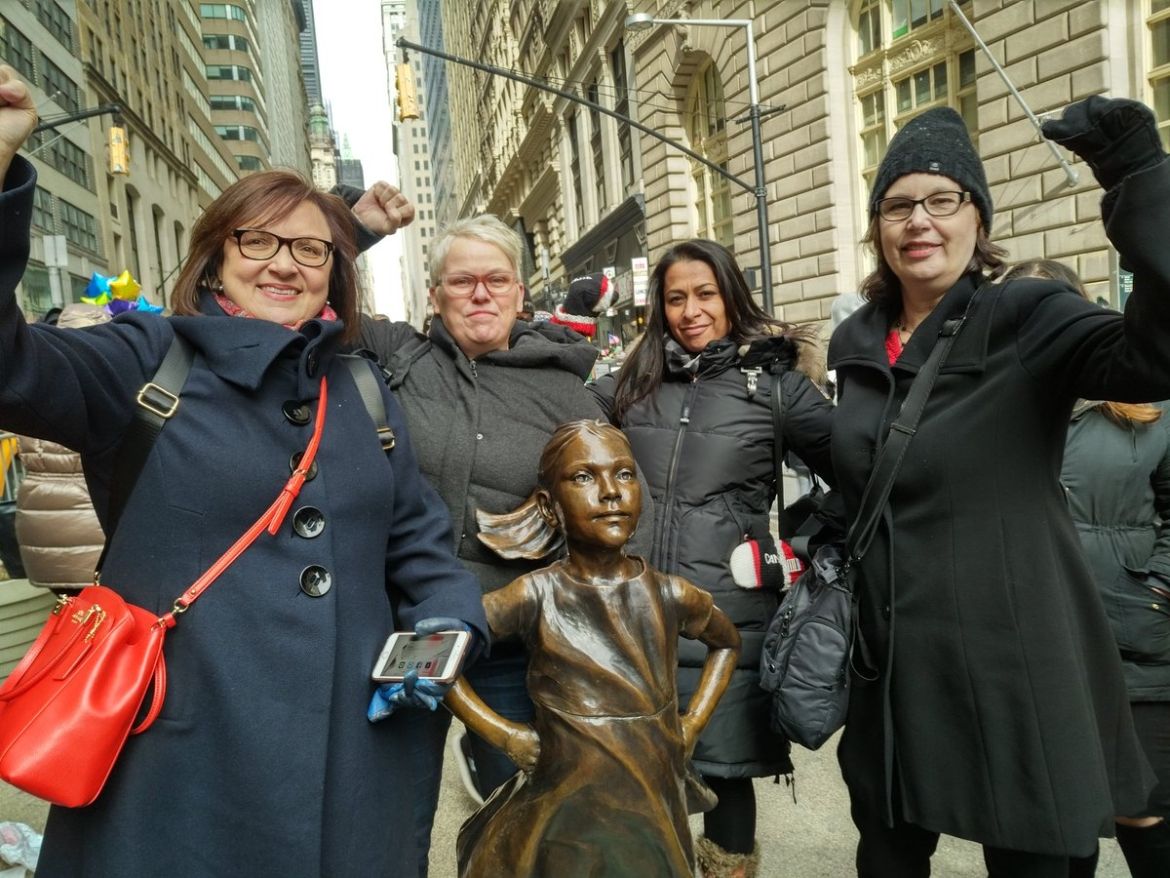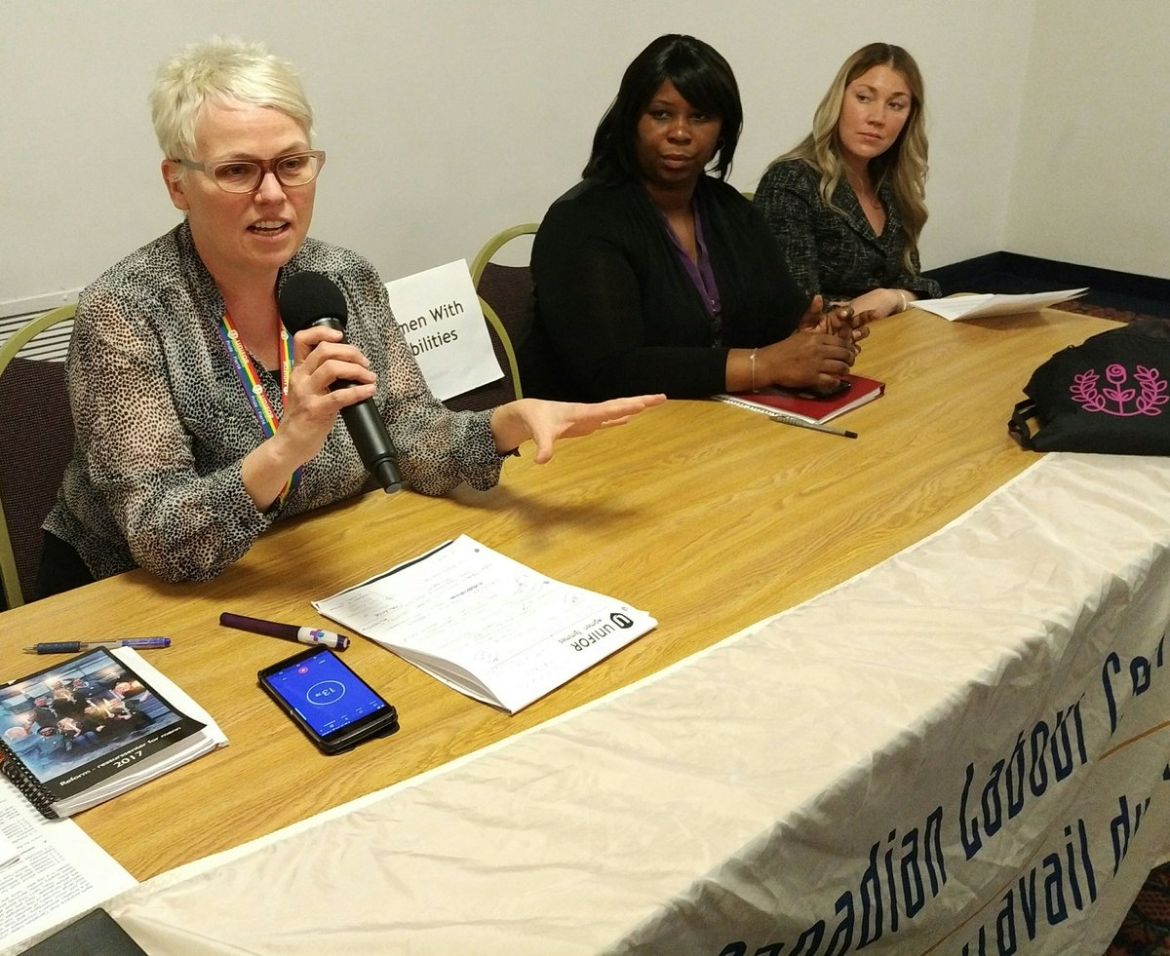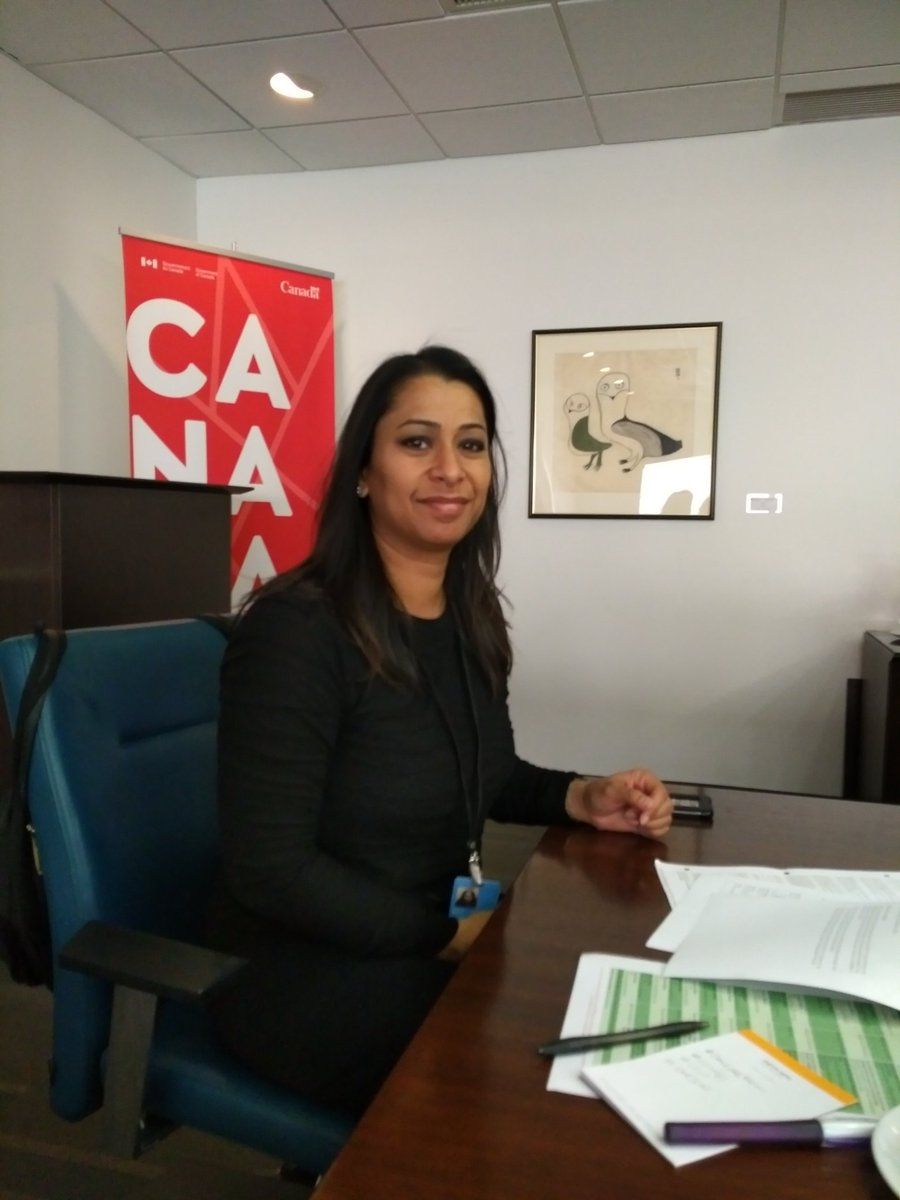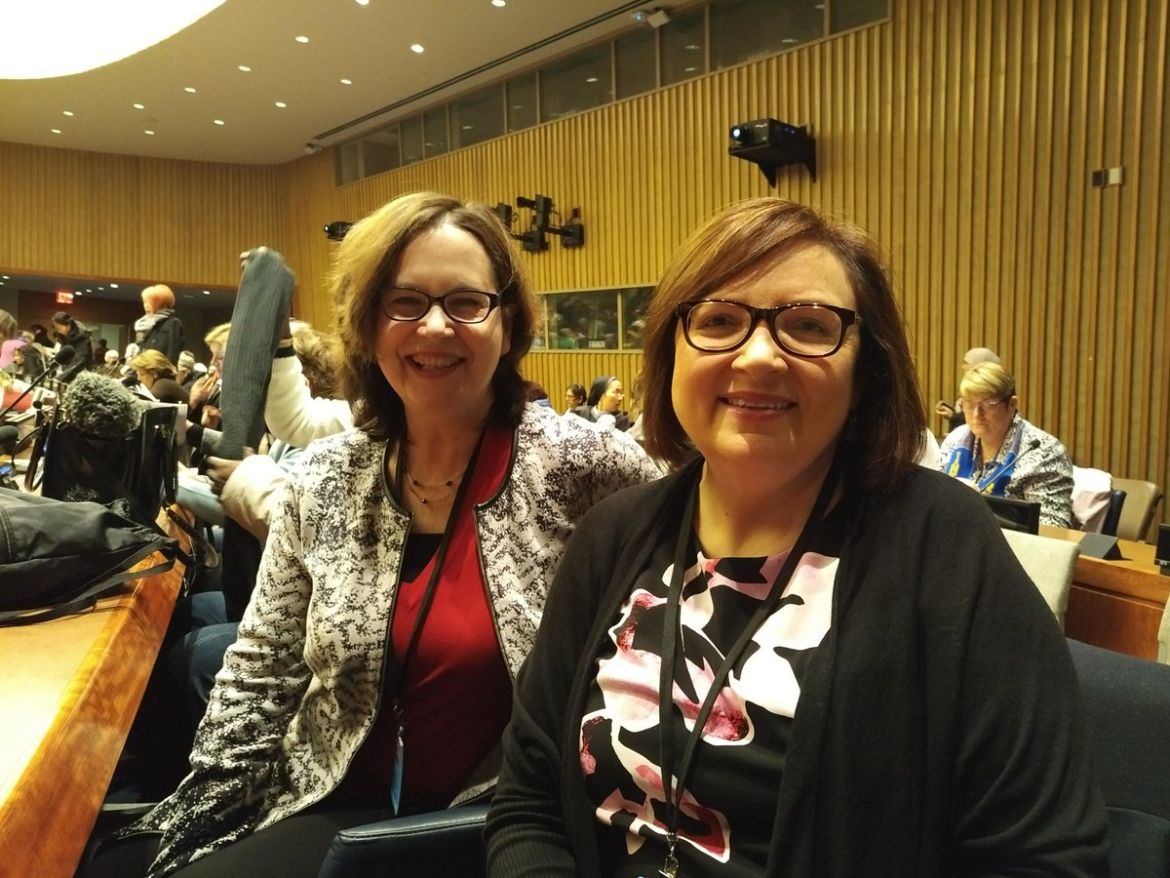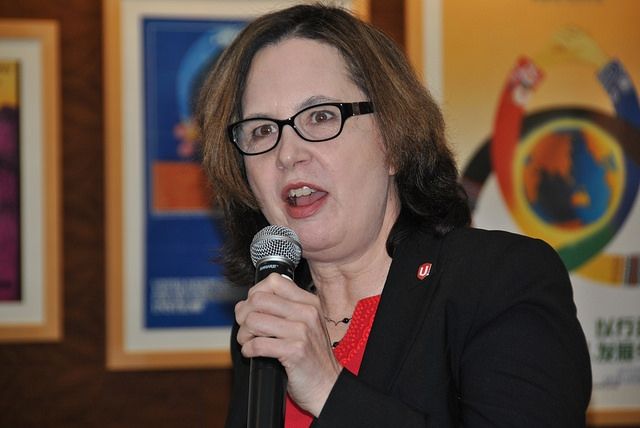
Share
Unifor’s Regional Directors and Women’s Director joined women from around the world at the 61st session of the Commission on the Status of Women (UNCSW61) from March 13-17, 2017.
This annual meeting of the United Nations Council on the Status of Women followed the theme of International Women’s Day 2017, Women’s Economic Empowerment in the Changing World of Work. In Canada, and around the world, sectors where women are traditionally employed are becoming increasingly precarious, and continue to face low wages and a wage gap. Women’s participation in the workforce, and access to good jobs is determined by a government's willingness to fund public services like universal childcare.
Who participated?
(Above, from left) Lana Payne, Unifor Atlantic Regional Director; Lisa Kelly, Unifor Women’s Director; Naureen Rizvi, Unifor Ontario Director; and Joie Warnock, Unifor Western Regional Director participated in panels and events throughout the meeting. Labour representatives, governments, activist groups and NGOs all came together to answer the question on how to ensure women’s economic empowerment and full equality. This year, above all, there was hope and a call for action in 2017.
Labour representatives, organized through the Global Trade Delegation, worked jointly on the submission, ‘A Woman’s Place is in Her Union!’ Unions are Central to Women’s Economic Empowerment in the Changing World of Work'. Working in solidarity with sisters from around the world, Unifor called for action, today, on issues that prevent women from being able to fully and safely participate as workers.
A set of events organized by labour partners gave delegates an opportunity to establish international solidarity and cooperation in parallel with the UN meeting. Canadian delegates met with Ministers Monsef and Hajdu to discuss strategies to ensure women have access to safe, stable jobs in Canada. Unifor Women’s Director Lisa Kelly spoke on a panel event outlining our union’s role in advancing human rights, and Ontario Regional Director Naureen Rizvi shared her experiences as an organiser working with Unifor's Community Chapters.
What comes next?
From ending gender-based violence at work to ensuring equal pay and well-financed, universal public services like child care, the message of Unifor women was heard by decision-makers. Many of the union women’s recommendations are included in the conclusions of UNCSW61.
Now that these truths are recognized by the UN, it is still up to Unifor members to hold our governments to account here at home and ensure that our movement reflects the diversity of our membership.
To keep pushing for economic empowerment, women must put the pressure on Saskatchewan Premier Brad Wall to adopt legislation currently tabled to establish paid domestic violence leave. Prime Minister Trudeau must keep hearing from you about how universal childcare and pay equity can help ensure women’s equality. And above all, Unifor women must persist, for sisters here and for those who continue the fight all around the world.
Share these stories from our Facebook page.
Lisa Kelly, Unifor Women’s Director
“I was honoured to be part of the UNCSW61 parallel event Labour of Love: Unions Advancing Women’s Human Rights. As a lesbian, I shared the importance of the labour movement in advancing 2SLGBTQI+ issues and where we had work still to do. Compared to most countries around the world, Canada has solid legal rights for lesbian, gay and bisexual people.
The current challenge in Canada is around transgender rights. We have implicit protection in our human rights legislation for trans people. However, there is a need to be more explicit and activists and unions have fought to get the ground of gender identity into human rights legislation.”
Naureen Rizvi, Unifor Ontario Regional Director
“It was on the first day that we learned from a panel of Indigenous women recounting their time in a Residential School System. One of the panel members was just 5 years old when she was taken from her family. I think of my own two children – they are at the tender ages of 6 and 7. How do children so young survive the lack of love and the fear that must overwhelm them?
I had the privilege of listening to Grand Chief Sheila North Wilson – a women so humble and so full of wisdom – her voice so calm, yet strong and focused and a voice well known for her work on bringing forth the National Inquiry on more than 1,200 missing and murdered Aboriginal women. I admire the sheer will of these women to change the fate of current and future Aboriginal and Indigenous women and girls in light of the atrocities they have endured.”
Lana Payne, Unifor Atlantic Regional Director
“The work of the UNCSW is particularly humbling when you consider the severe challenges faced by women in the developing world and yet their fighting spirit is a shining example to all of us. If they can resist, if they can find hope, if they can overcome, then we must be just as vigilant. You are reminded of this spirit immediately upon entering the UN with the stunning photographic display of women. Women in refugee camps learning new skills so they can provide a better life for their children; women who have survived decades of war and lost children and whose faces weather that heartache, but still find comfort in their friendships with each other; women empowered to fight the Ebola epidemic; women working with women.
It became so clear, standing amid these images with sunlight flooding through the massive windows overlooking the East River that women are indeed holding the world up and yet their equality is still an unrealized dream and for some a very distant dream. But of course women in Canada – Indigenous women, immigrant women, women of colour, and women with disabilities – also face profound barriers to equality. Indeed for Indigenous sisters their path to equality is perhaps among the most precarious.”
Joie Warnock, Unifor Western Regional Director
“Even this year, in the face of regressive governments at home who have attacked worker’s rights and women’s rights, the union sisters who join me at UNCSW still hold onto their visions for a better tomorrow. Every fight that we have won until now has been an uphill battle, so I am encouraged that we can achieve the demands that we have made for women in Canada.
We can win universal childcare and we can win paid domestic violence leave for all survivors. We will gain these necessary changes because the women of Unifor, and of Canadian labour are not only leaders in our unions, but like every women I have met at UNCSW, we are committed community organizers who are in it for the long haul."


